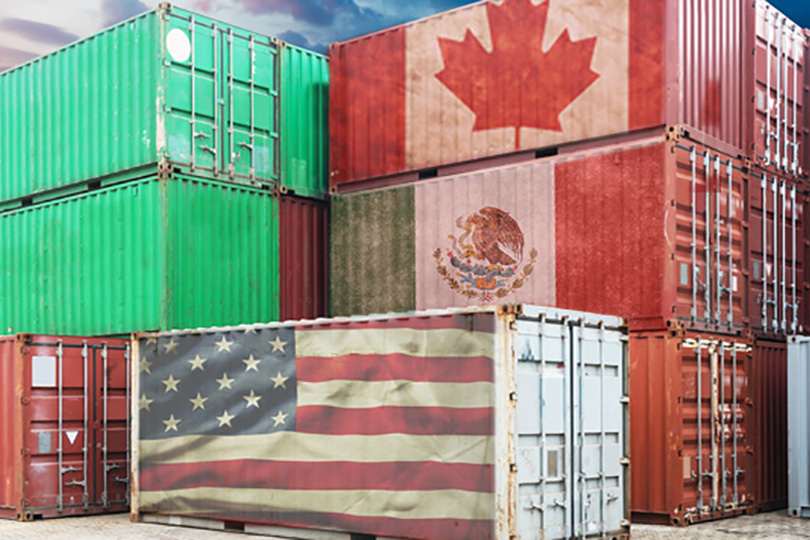By Jessica Domel
Multimedia Reporter
When it comes to the North American Free Trade Agreement (NAFTA), do no harm. That was the message carried to Montreal, Canada last week by Nueces County farmer Scott Frazier, who attended the sixth round of NAFTA talks with Farmers for Free Trade on behalf of Texas Farm Bureau (TFB).
“Our NAFTA agreement is overall good and just needs a little bit of tweaking and updating. For the most part, it’s working,” Frazier, who is also on TFB’s board of directors, said in an interview with the TFB Radio Network. “There’s a few minor things—most of it has to do with dairy and Canada—that need to be worked on. But beyond that, there’s not anything majorly wrong with it. It’s super important to us, especially producers in Texas, because so much of our products we produce and commodities we produce go to Mexico. A little bit goes to Canada.”
Frazier was the only Texan at the talks. He conveyed the importance of exports, especially to our southern neighbor.
“Probably a third of our commodities that we grow in Texas that are exported are exported to Mexico. Seventy percent of the chicken we export is exported to Mexico. Pork is right behind it. About a third of the beef we export is sent to Mexico,” Frazier said. “In most commodities, Mexico is our number one or number two trading partner. That’s a really important friend and customer to have.”
Although U.S. President Donald Trump has threatened to pull the U.S. from the trilateral trade agreement in the past, Trump and U.S. Secretary of Agriculture Sonny Perdue have promised to continue negotiations with Canada and Mexico.
The sixth round of talks was originally set to be the penultimate. Officials from both Mexico and the U.S., however, have said they believe additional talks are needed and may extend past the March deadline.
After the talks Monday, U.S. Trade Representative Robert Lighthizer expressed his frustration with the pace of renegotiations.
“We believe that some progress was made. We closed one chapter, as Ildefonso [Guajardo] said, it was the chapter on corruption, which is a very important chapter, and we made some progress on a few others,” he said. “More importantly, though, we finally began to discuss some of the core issues. So this round was a step forward, but we are progressing very slowly.”
Lighthizer said officials owe it to their citizens, who are operating in a state of uncertainty, to move much faster. He then referenced Trump’s preference for bilateral trade deals.
“Of course, negotiating as a group of three is more difficult than bilateral talks. Often, issues become more complicated and contentious when there are three parties,” Lighthizer said. “The United States views NAFTA as a very important agreement. We are committed to moving forward. I am hopeful progress will accelerate soon. We will work very hard between now and the beginning of the next round, and we hope for major breakthroughs during that period. We will engage with both Mexico and Canada urgently, and we will go where these negotiations take us.”
There is some concern, Frazier said, that elections in upcoming Mexico and the U.S. could derail NAFTA talks.
“They were hoping to get some of the primary details nailed down by March since things will kind of be put on hold shortly thereafter,” Frazier said. “I think uncertainty to farmers, the market and the folks who are purchasing our products in Mexico and Canada is the real issue right now. It’s kind of hurting everything and keeping markets sort-of depressed.”
The U.S.’ objectives for renegotiating the 23-year-old agreement inc

